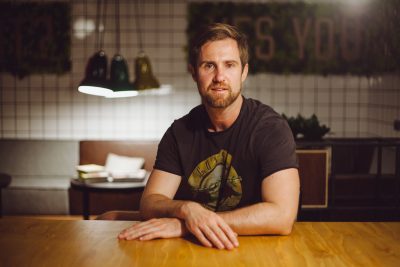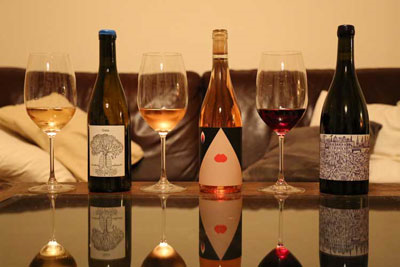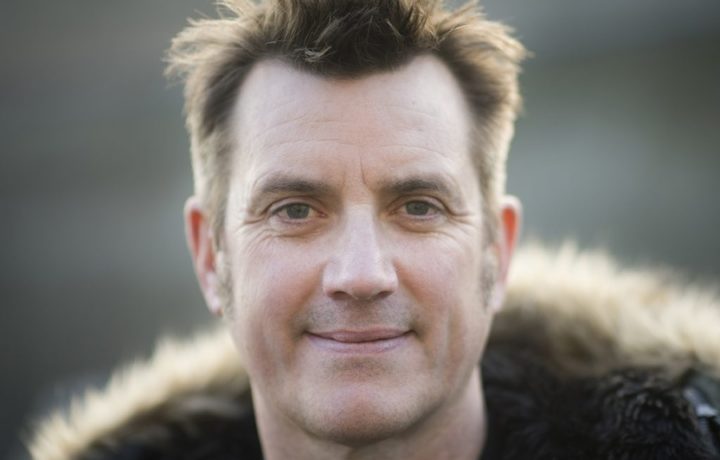Suppliers
Shortening supply chain key to building a more sustainable business

When Kyle Paskett set up Savage Vines in 2017 his business model involved getting very close to the source of the company’s product. It’s an approach that is serving him very well for different reasons in a post-Brexit world.
The Savage Vines offering is based on going straight to the source, buying direct from what are often family-run vineyards in Europe and South America. It’s a result of business owner Kyle Praskett feeling frustrated with what he saw as a failure in the way most wine was being bought and sold.
“The old approach didn’t make any sense as you don’t control the supply chain – you become a price taker not a price maker and are at the mercy of the margins others in the chain want to make,” he explained.
“From a value proposition point of view, I know I can buy cheaper at the vineyard gate and then sell more affordably to customers.”
While this model of buying direct from the source, building relationships with family growers, and then paying a fair price for wine made in sustainable ways has served Kyle well when it comes to attracting customers, it’s also been an effective strategy to deal with first coronavirus and then the impact of Brexit on trade.
Kyle’s background as a chartered accountant has also served him. Knowing how to structure money flows in and out, as well as experience with currency hedging, are skills he takes for granted but are key to operating a supply chain in the way he does.
Navigable challenges
Two months into Britain leaving the EU and Kyle is seeing delays of up to three weeks at the border, mainly due to everything coming in needing a commodity code. “It’s a lack of education from the producers, not knowing what code in the UK is used for what they are supplying,” he explained. “It’s an admin nightmare right now, but it’s just admin. It’s not so complex that you can’t do it.”
There’s also the change in the way in which VAT is paid. Whereas previously Kyle didn’t need to pay VAT at source, only at sale, now he must pay it on import – forgoing the cash and then reclaiming at a later date. This, again, is where his financial background has come in handy and where he thinks other businesses should be seeking advice and guidance.
“There are mechanisms to defer VAT, however that means fees for accountants. The cash cost is there, but there is no change on duty of wine like has been seen for other products.”
By staying close to his source supplier, Kyle is keeping the extra costs down so that he doesn’t have to pass them on to customers. Retailers with multiple steps in the supply chain will end up paying more, he believes. “My approach means I can become more price competitive as the layered model just adds costs.”
Looking forward

The success of his business model, both in terms of less friction in a post-Brexit world and an ecommerce offering that continued to attract new customers during the coronavirus outbreak, means Kyle is ready to scale up.
He’s about to do a first fundraising round using an equity crowdfunding platform. The money he’s confident about securing will go towards optimising the website, as it is the primary purchasing channel, and doubling the number of wines he’s able to offer. Extra working capital is needed to forge new relationships with different vineyard suppliers.
Kyle and the business use freelancers and agencies for functions such as warehousing, customer service digital design and marketing, but the entrepreneur hopes to be able to start bringing some of those roles in house sooner rather than later – particularly customer service so that great wine knowledge is on hand when questions arise.
As it stands Savage Vines is making 1,500 deliveries a month, which is forecast to grow by 3,000 by the end of the year – with our without the extra funding. Kyle is targeting a turnover of £5m by 2024, with growth coming from increase in shareholder customers, brand awareness, new products, and additional revenue streams.
Despite his ambition, coronavirus has given Kyle some food for thought about the future. “Last year taught me to trust your instincts and be patient,” he revealed. “I learnt that you are not going to grow quickly overnight and that there will be issues that aren’t your fault or wrongdoing. It’s almost better that you grow slowly because it gives you opportunities to iron out problems operationally before you get to a point where you have lots of customers but lots of problems.”
Kyle is firm in his belief that long-lasting success will come from building a platform that both brings people together and is owned by drinkers and makers collectively. In a time when provenance, quality of product and new experiences are being prioritised, it feels like Savage Vines is well positioned to grow in popularity and support a sustainable supply chain made up of other small businesses.


